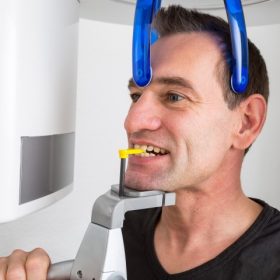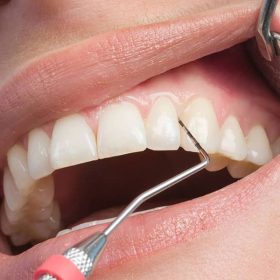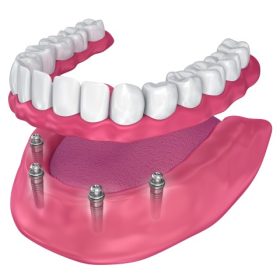Periodontology

Periodontology is a specialized branch of dentistry that focuses on the study and treatment of diseases related to the gums and supporting tissues of the teeth. Dentists specialized in periodontology diagnose, treat, and prevent gum diseases. Gum diseases are common oral health problems that affect the soft tissues and bones surrounding the teeth. The primary aim of periodontology is to preserve the health of teeth and gums through early diagnosis and treatment.
Procedures and treatments performed in periodontology include:
- Gum Examination: Periodontists examine the gums and teeth to detect the presence of gum diseases through a gum examination.
- Dental Scaling: Cleaning of dental tartar below the gum line and removal of bacteria in gum pockets are essential for maintaining periodontal health.
- Gum Surgery: Advanced gum diseases may require periodontal surgical procedures. Surgical interventions involve cleaning the root surfaces below the gum line and reshaping gum tissues.
- Dental Implants and Bone Grafting: Dental implants or bone grafts may be used to reconstruct and support gum and jawbone in cases of tooth loss.
- Periodontal Disease Maintenance: Regular check-ups are performed in patients with gum diseases to prevent disease progression and maintain periodontal health.
Early diagnosis and treatment of periodontal diseases are crucial for the long-term health of teeth and jaw structure. Neglecting gum diseases can lead to serious problems, such as tooth mobility, gum recession, tooth loss, and bone damage.
Therefore, regular dental check-ups, maintaining good oral hygiene, and receiving regular dental cleanings are essential for preserving periodontal health. When symptoms of gum disease, such as gum bleeding, swelling, or redness, or tooth mobility are observed, seeking advice from a periodontal specialist is important. Early diagnosis and treatment can halt the progression of periodontal diseases and help ensure the longevity of teeth.







